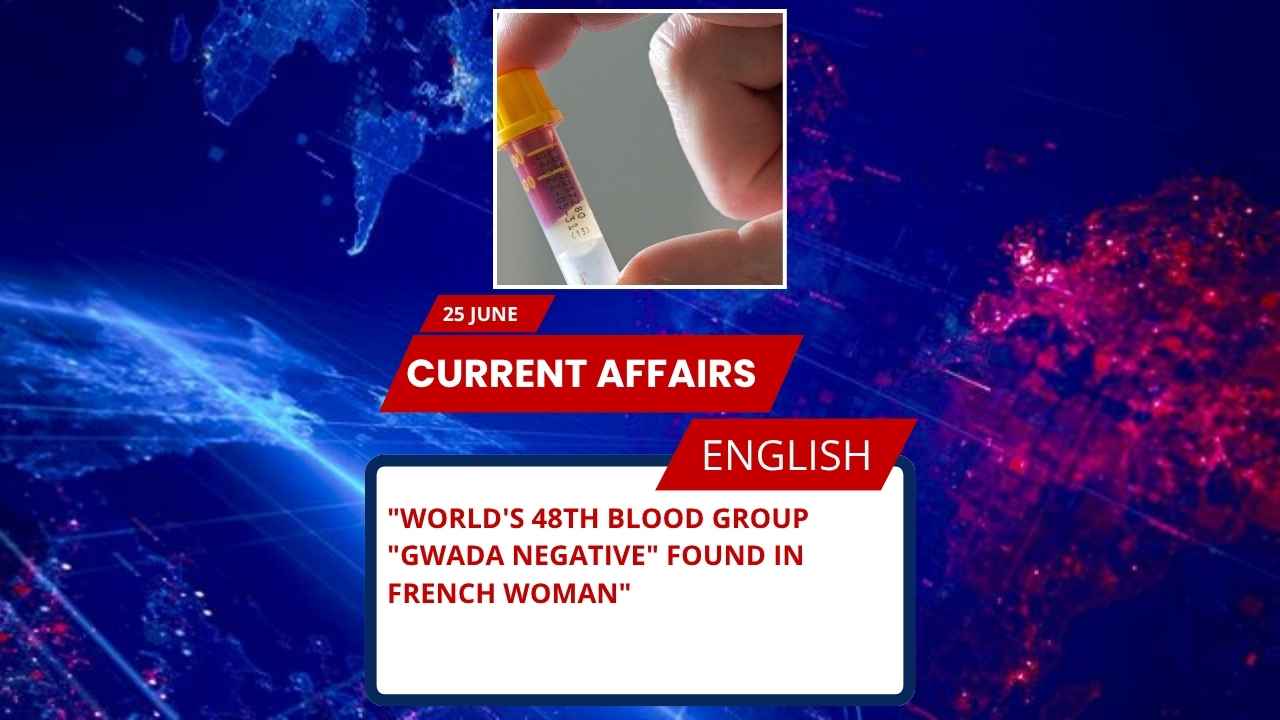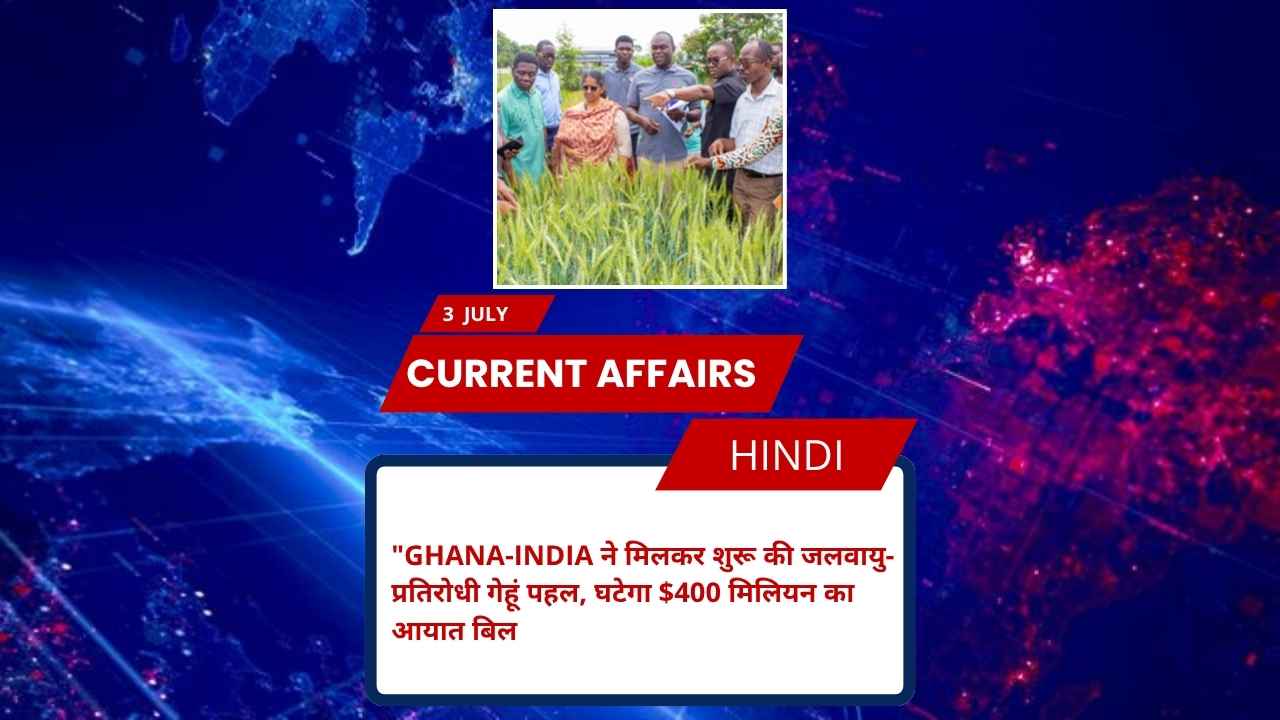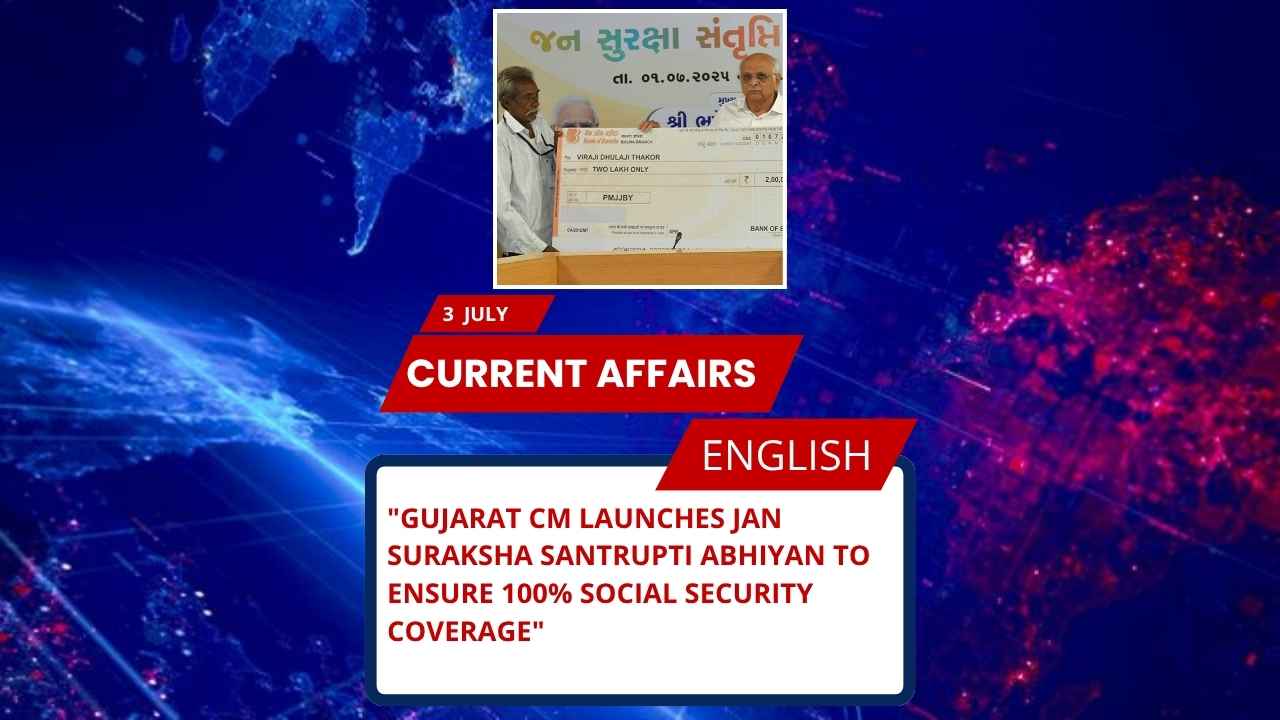
Key Points for SSC/UPSC and Other Govt Exams
- The 48th blood group system in the world has been officially recognized.
- It is named “Gwada Negative” after the patient’s Guadeloupe origin.
- Discovered by French Blood Establishment (EFS); verified by International Society of Blood Transfusion (ISBT).
- Patient: A 54-year-old woman from Guadeloupe, living in Paris.
- Discovery enabled by high-throughput DNA sequencing.
- The patient is the only known compatible person for this blood type globally.
- Discovery highlights advancement in genetic testing in modern medicine.
- The ABO system was discovered in the early 1900s; this is the first new system after 47.
Full Blog: Discovery of a New Blood Group — “Gwada Negative”
Introduction
In a landmark scientific breakthrough, French scientists have discovered the world’s 48th blood group system — “Gwada Negative” — in a woman originally from Guadeloupe, an island in the Caribbean. This makes her the only known person on the planet with this unique blood type, marking a significant moment in medical science and transfusion research.
The Discovery Journey
The woman, aged 54 and residing in Paris, was undergoing routine tests in 2011 ahead of surgery when an unusual antibody was detected in her blood sample. Due to resource limitations at the time, further analysis was postponed. It wasn’t until 2019 that advanced high-throughput DNA sequencing technology revealed a genetic mutation responsible for this new blood type.
According to Thierry Peyrard, medical biologist at the French Blood Establishment (EFS), the woman inherited this unique type from both parents — each carrying a copy of the mutated gene.
This finding was officially confirmed by the International Society of Blood Transfusion (ISBT) in Milan, Italy, in early June 2025. The ISBT is the global authority that maintains classifications of blood group systems, and prior to this, only 47 were recognized.
Why “Gwada Negative”?
The name “Gwada Negative” is derived from the woman’s Caribbean roots in Guadeloupe (commonly nicknamed “Gwada”). The scientific team chose this name as it is linguistically appealing across cultures and countries, aiding international recognition.
Medical Significance
The discovery is more than a curiosity. It:
- Enhances precision in blood transfusions,
- Broadens the scope of rare blood type identification,
- Offers improved clinical care for people with rare blood profiles.
Moreover, this underlines the critical importance of genetic research and global collaboration in medicine.
About Guadeloupe (Important for Exams)
- Location: French overseas region in the Caribbean
- Capital: Basse-Terre
- Currency: Euro (€)
- Official Language: French
- Status: Part of France and the European Union
- Key Fact: Guadeloupean citizens are also French citizens
- Unique: Rich in biodiversity and is a volcanic archipelago
- Relevance in Exams: Often mentioned in international and French overseas territory questions
About International Society of Blood Transfusion (ISBT)
- Founded: 1935
- Headquarters: Amsterdam, Netherlands
- Function: Standardizes and approves new blood group systems worldwide
- Recognized Blood Group Systems (as of 2025): 48
- Key Role: Advances research and safety in blood transfusion globally
Expected MCQs for Exams
Q1. Which country recently discovered the world’s 48th blood group system called “Gwada Negative”?
A. USA
B. India
C. France
D. Brazil
Answer: C. France
Q2. “Gwada Negative”, a newly discovered blood group, is named after which region?
A. Guyana
B. Guadeloupe
C. Martinique
D. Haiti
Answer: B. Guadeloupe
Q3. Who officially recognized the 48th blood group system in June 2025?
A. WHO
B. ICMR
C. ISBT
D. Red Cross
Answer: C. ISBT
Q4. What advanced technique helped discover the new blood group?
A. RNA sequencing
B. PCR testing
C. High-throughput DNA sequencing
D. X-ray diffraction
Answer: C. High-throughput DNA sequencing
Q5. What is the name of France’s national blood agency involved in this discovery?
A. Pasteur Institute
B. Blood Transfusion France
C. French Blood Establishment (EFS)
D. National Health Institute
Answer: C. French Blood Establishment (EFS)
UPSC-Level FAQs with Answers
Q1. What is the significance of discovering a new blood group system like “Gwada Negative” in the context of public health and medicine?
Answer:
The discovery of a new blood group system enhances the understanding of human immunohematology and provides a foundation for improved transfusion safety, especially for individuals with rare antigen profiles. It allows for precise donor matching and reduces risks of transfusion reactions. Moreover, it highlights the importance of global databases and genetic screening in identifying rare blood types, which is vital in emergency medicine, organ transplantation, and prenatal care. In the long term, such discoveries support evidence-based policy formulation for blood donation systems.
Q2. Explain the role of the International Society of Blood Transfusion (ISBT) in global healthcare.
Answer:
The ISBT functions as the international regulatory authority in classifying and validating blood group systems. It ensures global standardization, provides scientific consensus, and facilitates knowledge-sharing among countries to advance blood transfusion practices. Through its recognition of discoveries like “Gwada Negative,” it validates critical scientific contributions and enables coordinated efforts in transfusion safety, rare blood management, and international donor registries.
Q3. How does high-throughput DNA sequencing contribute to advancements in modern medicine?
Answer:
High-throughput DNA sequencing allows rapid and detailed analysis of entire genomes, enabling the identification of minute genetic mutations that may not be detected by conventional methods. In medicine, this facilitates the discovery of new blood group systems, rare genetic disorders, and the development of personalized treatments. Its application extends to diagnostics, oncology, rare disease research, and precision medicine — making it a cornerstone of 21st-century healthcare innovation.
Q4. What are the implications of such rare blood discoveries on national blood banks and emergency preparedness?
Answer:
National blood banks must adapt their protocols to include rare blood group registries, international collaborations, and specialized donor recruitment strategies. Discoveries like “Gwada Negative” stress the need for genetic screening, frozen rare blood stockpiling, and specialized logistics in emergencies. It also prompts nations to invest in technological upgrades and medical training to manage complex transfusion needs effectively.







